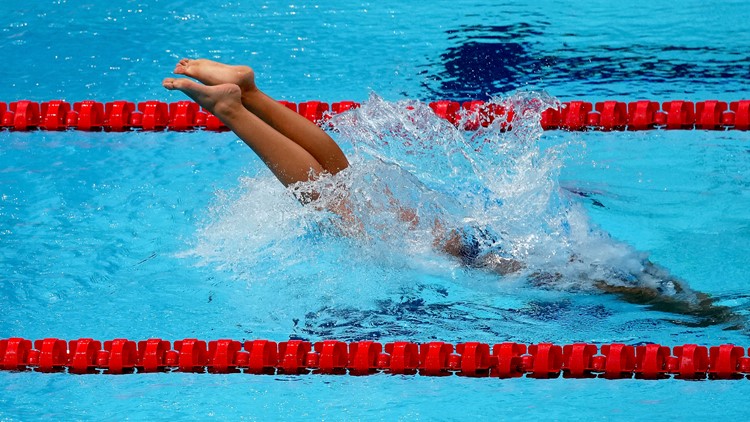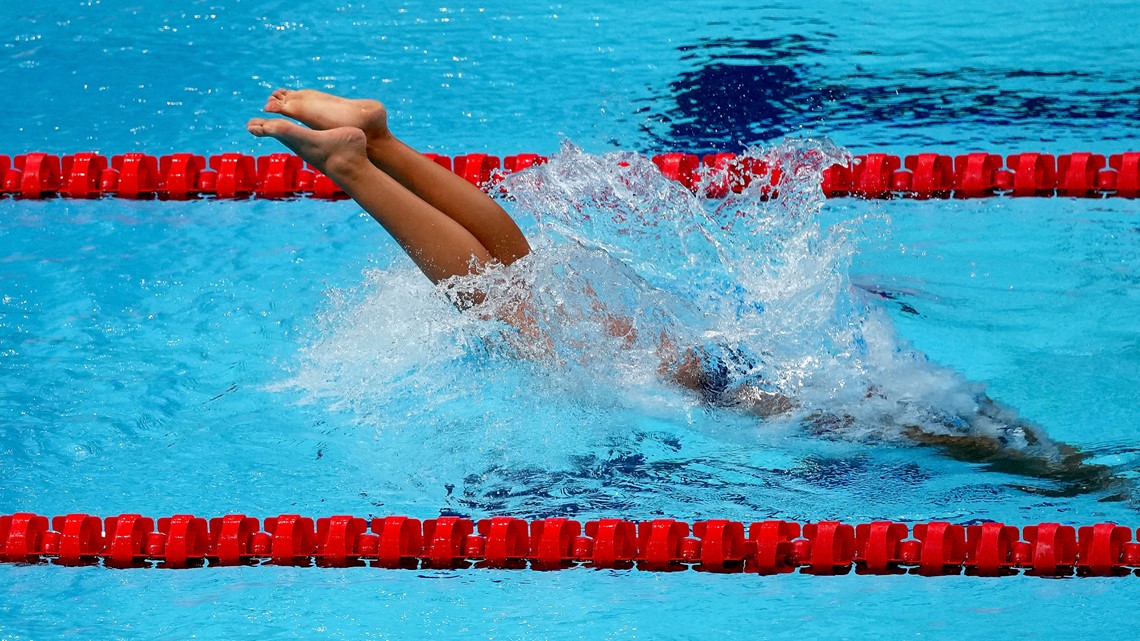
The rules of most competitive water sports are decided by FINA, an international federation based in Switzerland.
WASHINGTON — The postponed 2020 Tokyo Olympics are underway, and fan-favorite events include the men’s and women’s swimming and water sport competitions.
According to the International Olympic Committee, swimming is the second largest sport at the Olympics and is featuring a record total of 35 events in Tokyo.
Here are answers to several questions that seem to always peak viewers’ interest:
How cold are Olympic pools?
Overall, water temperatures for competitions need to be between 25° to 28° Celsius or 77° to 82.4° Fahrenheit.
However, FINA, the international federation that handles water sport rules and regulations, says that different sports require slightly different pool temperatures.
For water polo matches, the water temperature must be within a degree of 26° Celsius or 78.8° Fahrenheit.
Platform diving pools cannot be less than 26° Celsius or 78.8° Fahrenheit. However, artistic swimming pools must be within a degree of 27° Celsius or 80.6° Fahrenheit.
USA Swimming in 2017 said the pool temperatures are set to a certain temperature as a safety precaution for athletes. If a pool is too warm, it can cause dehydration, overheating or worse.
How deep are the pools?
FINA has determined that Olympic pools for the Games need to be a minimum of 2 meters deep (about 6.5 feet), but 3 meters is recommended (almost 10 feet).
How big are Olympic swimming pools?
Swimming pools for Olympic games must be at least 50 meters (164 feet) long between the Automatic Officiating Equipment touch panels and 25 meters (82 feet) wide.
Where do swimming athletes compete in Tokyo?
Swimming, diving and artistic swimming at the Tokyo Olympics are all taking place at the Tokyo Aquatics Centre. It was constructed in the Tatsumi-no-Mori Seaside Park.
What will the Tokyo Olympic pools be used for after the Games?
The IOC said following the 2020 Games, the Tokyo Aquatics Centre will be used to host domestic and international competitions.
Who decides the swimming pool rules?
FINA, the international federation that handles water sport rules and regulations, gives advice and contributes to the success of the Olympic Games. It develops rules for water polo, diving, high diving, synchronized swimming, open water swimming and masters.
FINA stands for “Fédération internationale de notation” in French. In English, the organization is just International Swimming Federation.













































